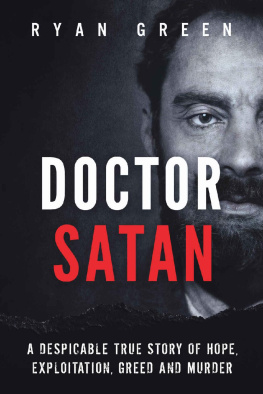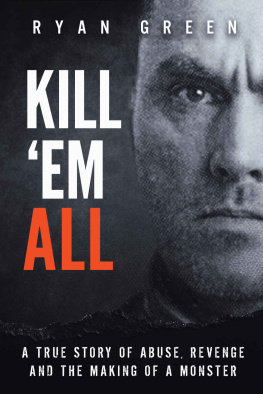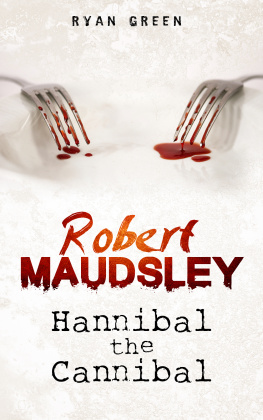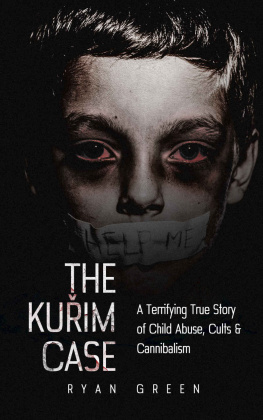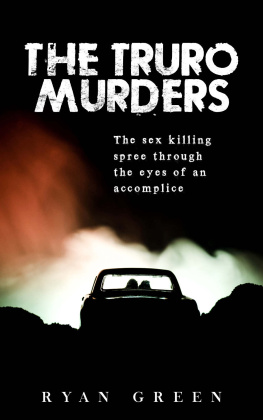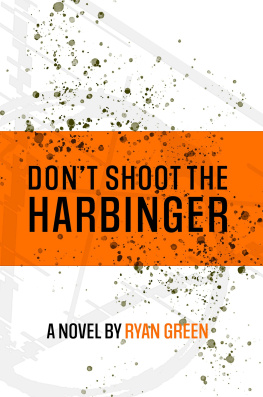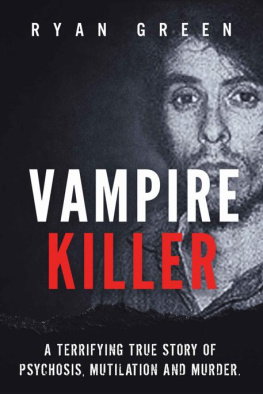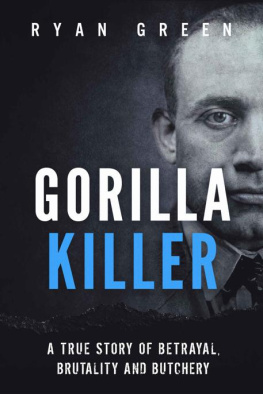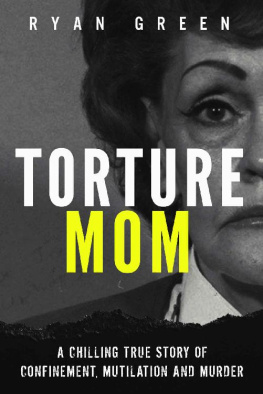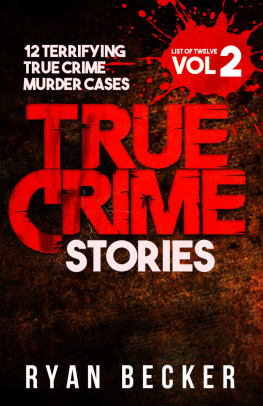Copyright Ryan Green 2021. All rights reserved.
No part of this book may be reproduced in any form without permission in writing from the author. Reviewers may quote brief passages in reviews.
This book is about real people committing real crimes. The story has been constructed by facts but some of the scenes, dialogue and characters have been fictionalised.
This book is written in British English except where fidelity to other languages or accents are appropriate. Some words and phrases may differ from US English.
Get a free copy of Robert Maudsley: Hannibal the Cannibal when you sign up to join my Readers Group.
Final Solutions
The streets of Paris were clotted with smog. Many months had passed since the occupation began, and the factories that had fallen silent as the French war effort ended had been brought lurching back to a semblance of life. Conscription orders had gone out; every able-bodied man was to report to their assigned duty or face repercussions. So those undead bastions of industry spewed forth new, bilious clouds that turned the sky and the streets black by midafternoon each day.
That conscription programme was how they had found the Doctor. There had always been whispers about him, even before the war. Insinuations that he was willing to do the things that his more ethical compatriots would not. Yet now in this dark time, there was no denying that his moral flexibility was just what France needed. He had no compunctions about lying to the Nazis. Whatever else he might have been, abortionist or drug peddler, there was no denying that he was at his heart a Frenchman, and the same longing for freedom from the yoke of tyrants burned in his heart. His were the people who had beheaded their kings was it any wonder that the little Austrian with the funny moustache grated on his nerves?
So when the conscription notices were sent out from whatever dingy office the Germans had commandeered, a series of polite envelopes were returned with a signed notice from a medical professional that they must be excluded from any forced work programmes on the basis of disability. There were not many of these envelopes, not nearly enough to arouse any sort of suspicion, but it seemed that Paris housed many more disabled people than any census might have suggested.
In particular, those who resided by the Rue des Rosiers found that they were not required to attend any of these new jobs that the Nazis had found for them. Indeed the whole Jewish Quarter in Marais seemed to have suffered dreadful injuries during the Great War, and such being the case, only a very few of the men could be compelled to manufacture munitions and materiel for the war effort against the Allies. Very few Jewish men had to endure the judging eye of the Nazi overseers, quietly taking note of their heritage and preparing more permanent places for them and their families.
There were rumours about the Doctor even among those who made use of his services. There were those who said that he was more than just a kindly man, willing to sign what he must to protect his fellow Frenchmen from the wicked invader. Some whispered that he was a part of the underground resistance. Others that he served as a spy, feeding information out of France to the allies. It was this last part that was of interest to the Parisian Jews, because for information to get out, a route was required.
As the occupation marched on through the year with its jackboots shined, people began to go missing. There was no mystery whether the Nazis were responsible if anything, they broadcasted the fact of their relocation programmes and ghettos with great delight, as though the fear and the cruelty was the point of the exercise. The missing people that interested the Jewish community were the ones who put all of their affairs in order, withdrew all of the money from their accounts, and then vanished without a trace.
The French police made no effort to find them. If anything, they made deliberate efforts to muddy the trail where they could. Meanwhile, the Gestapo were run off their feet chasing after all of the very real spies and saboteurs still at work in Paris. They had no time to be chasing ghosts. If some of the racial enemies of the German state vanished, then whoever was responsible was doing their work for them.
Yet the trail was followed. Not by the police, or the Fuhrers errand boys, but by the Jewish community itself. None of them begrudged anyone their secrecy, but if there was a way out before the trap snapped shut, then of course they were going to take it.
Valentin was the latest to follow that trail. He had not been lucky enough to avoid Nazi attention. He knew that his name was on their lists, that it was just a matter of time before the knock came in the middle of the night and he was hauled off onto a train to nowhere, never to be seen or heard from again. He did not know about the camps, the gas, the final solution none of that would become public knowledge until long after the war was done but he knew that danger stalked him. Doom followed in his footsteps every day that he trudged to his factory work and the overseers peered down at him, noting the curls of his dark hair, his pronounced nose, and his surname staring up at them from their list. He had seen the little star beside his name in their record books. He could see that same star alongside rows that had been crossed through. Men, Jewish men, who were no longer expected to return to work in the factory. He was not going to let them do that to him. He was not going to become another line in another ledger, moved from column to column.
So he was here in the smog now, stalking from alleyway to alleyway, hoping that he would not be caught breaking curfew. It had been a simple enough piece of detective work for him to realize that every one of the people who had vanished had also received a writ from the Doctor excusing them from work. Once you knew about that one illicit endeavour of his, it seemed quite obvious that the Doctors underground connections were getting the endangered out of Paris and into safer territory, sending his spying reports along in their hands to help the allies fight back against the occupation.
Every franc that Valentin owned was in his pockets. Whatever the cost to get out of France, he would pay it without complaint. What use was money if you were dead or imprisoned?
The same smog that made it easy to avoid the eyes of the patrolling Germans made the city into a stranger. Valentin had spent all of his years on these streets, and the Germans had made them alien to him. Not just their flags flapping in the breeze or the checkpoints they set up around the city even the air tasted wrong. Where once he could lift his nose and know at once whether he was close to the patisseries of the Rue de Seine or catch a waft of perfume warning him he was near to Montmartre, now the whole city stank of relentless industry. He had to walk the streets by memory now, trusting his feet to carry him more than his eyes to lead him.
Yet despite all that had changed, memory still served him well. Though it may have been hours after the curfew, his journey through the city had been swift and unnoticed. He scrambled up the steps to the Doctors door and rapped on it firmly with his knuckles, eyes darting around to make sure that he was not seen by any neighbour or potential Nazi collaborator. Just when he was beginning to wonder if he should knock again, harder, and risk drawing attention, the door popped open like a cork from a bottle of champagne and the Doctor was there in all his quiet dignity.

